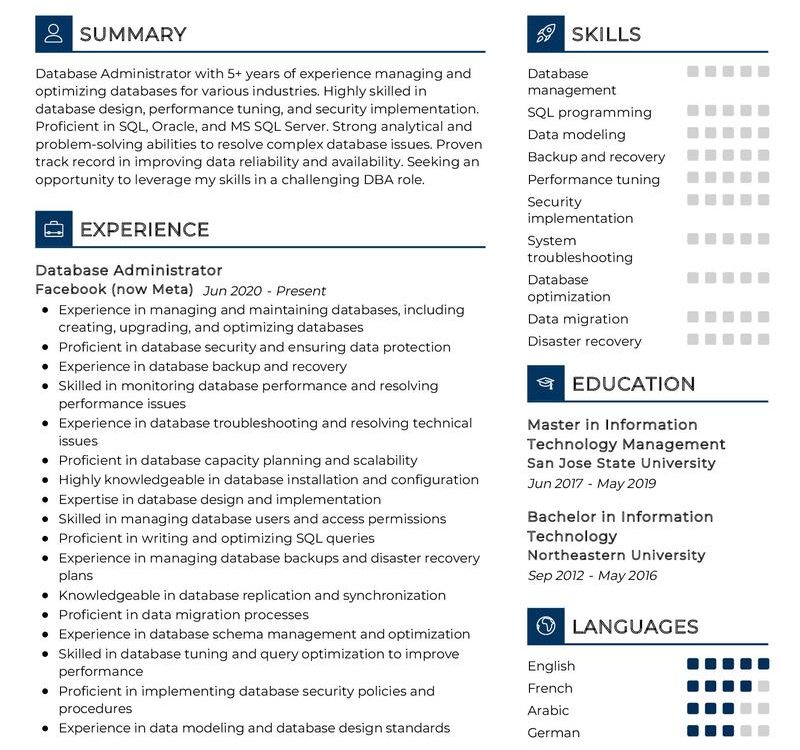Understanding the Role of a Database Administrator
In today’s data-driven world, the role of a Database Administrator (DBA) holds immense importance. DBAs play a crucial role in managing, organizing, and securing data, ensuring smooth operations for organizations across various industries. Let’s explore in detail the responsibilities, requirements, and skills necessary for a successful career as a Database Administrator.
Key Responsibilities of a Database Administrator
A Database Administrator is responsible for the overall management of databases within an organization. This involves:
- Designing, implementing, and maintaining database systems.
- Monitoring database performance and optimizing queries for efficiency.
- Ensuring data security and integrity through backups, access controls, and encryption.
- Troubleshooting database issues and resolving them in a timely manner.
- Collaborating with other teams to understand data requirements and implement solutions.
- Planning for database scalability and growth to accommodate future needs.
These responsibilities require a combination of technical expertise, problem-solving skills, and attention to detail.
Job Requirements for a Database Administrator
To excel as a Database Administrator, one needs to meet certain qualifications and acquire specific skills:
- A bachelor’s degree in computer science, information technology, or a related field.
- Proficiency in database management systems such as Oracle, MySQL, SQL Server, etc.
- Experience with database design, implementation, and maintenance.
- Strong analytical and troubleshooting skills.
- Knowledge of data security best practices.
- Excellent communication and collaboration skills.
Additionally, certifications such as Oracle Certified Professional (OCP) or Microsoft Certified: Azure Database Administrator Associate can enhance your credentials in this field.
Skills Required for Success as a Database Administrator
Being a successful Database Administrator requires a diverse skill set, including:
- Technical proficiency in database management systems and SQL.
- Problem-solving abilities to diagnose and resolve database issues.
- Attention to detail to ensure data accuracy and integrity.
- Communication skills to interact with stakeholders and convey technical information effectively.
- Adaptability to learn new technologies and stay updated with industry trends.
Developing and honing these skills can help you thrive in a dynamic and challenging environment.
Sample Database Administrator Resume Writing Tips
When crafting your resume for a Database Administrator position, consider the following tips:
- Highlight your experience with specific database management systems and any relevant certifications.
- Showcase your problem-solving skills by describing how you have resolved database issues in previous roles.
- Quantify your achievements, such as improving database performance or implementing security measures.
- Customize your resume for each job application to emphasize the most relevant skills and experiences.
By following these tips, you can create a compelling resume that showcases your qualifications and experiences as a Database Administrator.
Conclusion
Being a Database Administrator is a challenging yet rewarding career path, offering opportunities for growth and impact in today’s data-driven world. By acquiring the necessary qualifications, skills, and experience, you can embark on a successful journey in this field.
Finally, feel free to utilize resources like AI Resume Builder, Resume Design, Resume Samples, Resume Examples, Resume Skills, Resume Help, Resume Synonyms, and Job Responsibilities to create a standout application and prepare for the Database Administrator job interview.


